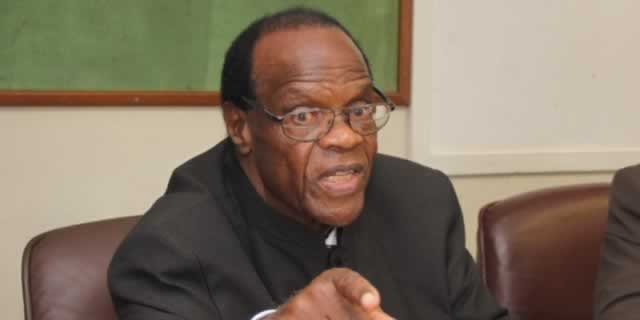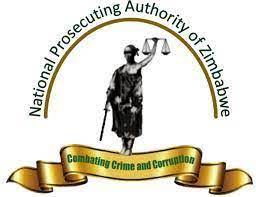President praises new education curriculum


President Mugabe greets Ministry of Primary and Secondary education permanent secretary Prisca Utete Masango at the 3rd education conference and expo in Harare yesterday. — Picture by Innocent Makawa
Innocent Ruwende, Harare Bureau
PRESIDENT Mugabe yesterday hailed the new education curriculum saying it fosters entrepreneurship and opens up opportunities for Zimbabweans to be skilful and innovative.
Officially opening the 3rd Education Conference and Expo 2017, President Mugabe said the new curriculum will shed off the employee mentality among students.
“The issue of sustainability is embedded in the new curriculum which fosters entrepreneurship. Entrepreneurship education and training is meant to inculcate abilities for learners at all levels with knowledge, values of unhu/ubuntu, skills and appropriate motivation, and to encourage entrepreneurial success in a variety of settings,” he said.
“Such education is important because learners will be able to transform innovative ideas into economic goods and services upon leaving school at the different exit points as opposed to education to make school leavers just employees. Job seekers who just want to be employed,” he said.
President Mugabe said the nation wants an education which produces skilled entrepreneurs who create jobs for themselves and others.
He said such skills encompass problem-solving, leadership, communication and teamwork, as well as technological skills.
President Mugabe said the new curriculum also aims to inculcate national identity values, producing citizens who are proud of their nation, and the trajectory that their nation has travelled.
Zimbabwe’s learners, he said, must indeed be committed to the values of discipline, honesty, and dignity of hard work. “I must point out that today’s environmental problems pose a challenge to today’s education, hence the need to find ways of making education sustainable, the need to teach differently to address todays problems, and the need to transform schools and teachers for 21st century learning,” he said.
“The new curriculum aims to transform the education system from a content-based curriculum that is grounded on both continuous assessment and public examinations.
“Further, the curriculum has an oriented system, where learning areas that instill national values such as self -reliance, business culture, responsible citizenship, critical global awareness, environmental stewardship, inclusiveness and tolerance, among others have been adopted,” President Mugabe said.
Teachers, he said, were key in any curriculum innovation hence the need to capacitate them through the provision of teaching materials of the new curriculum.
President Mugabe said the use of technology in innovative teaching and learning cannot be overemphasised as large classes can be taught effectively using computers.
“When we introduced the computer at the time I made up my mind that every school that has electricity will get at least 10 computers sometimes 20. It was not Government. Whatever money I could get, whatever I could save when I travel, I bought computers for distribution. I was happy that my efforts were gaining support,” he said.
President Mugabe said he was happy that many teachers were now using computers and young children were also able to use computers.
He spoke of the importance of the teaching of the girl child saying women were capable of taking up any subjects including science and could outsmart the boy child. “The girl child sought and got recognition. The girl child was of greater help to the parents, mother and father than the boy child,” he said.
Primary and Secondary Education Minister Lazarus Dokora said the education curriculum needs constant updates, so they will be in tandem with the country’s needs of the time.
He said the curriculum was a product of the Nziramasanga Commission of Inquiry, which had made recommendations that were, however, not implemented. “The Presidential commission of inquiry on education and training that you set up in 1998 revealed that our curriculum had outlived its purposefulness,” he said.
The event is being attended by several cabinet ministers, delegates from Cuba, Botswana, South Korea, Botswana among other countries, senior Government officials as well as more than 7 000 headmasters from across the country.







Comments